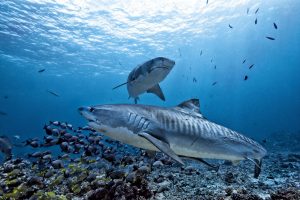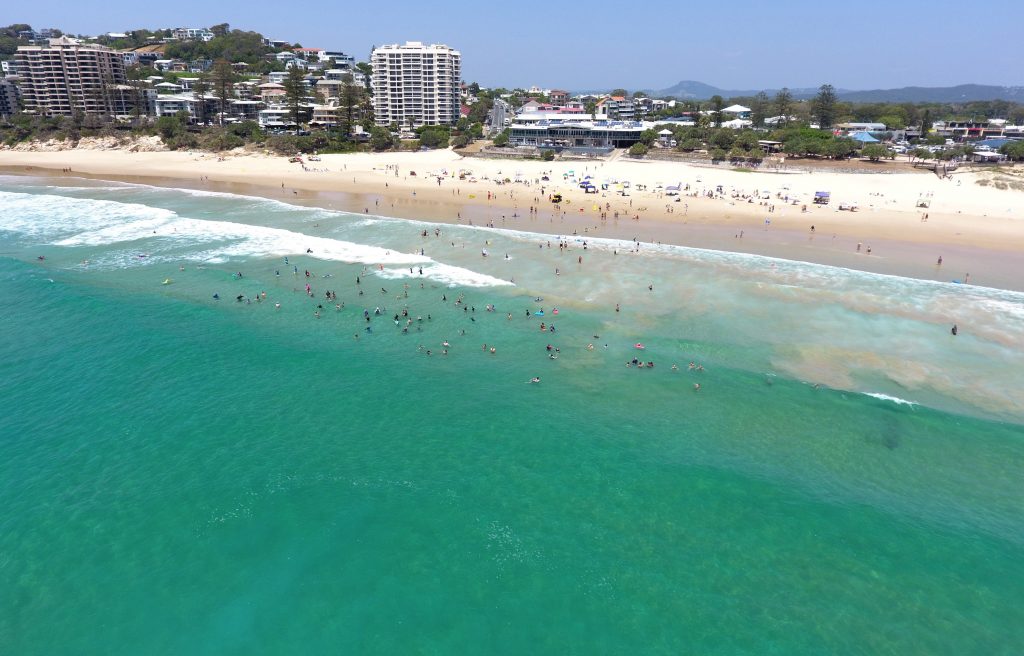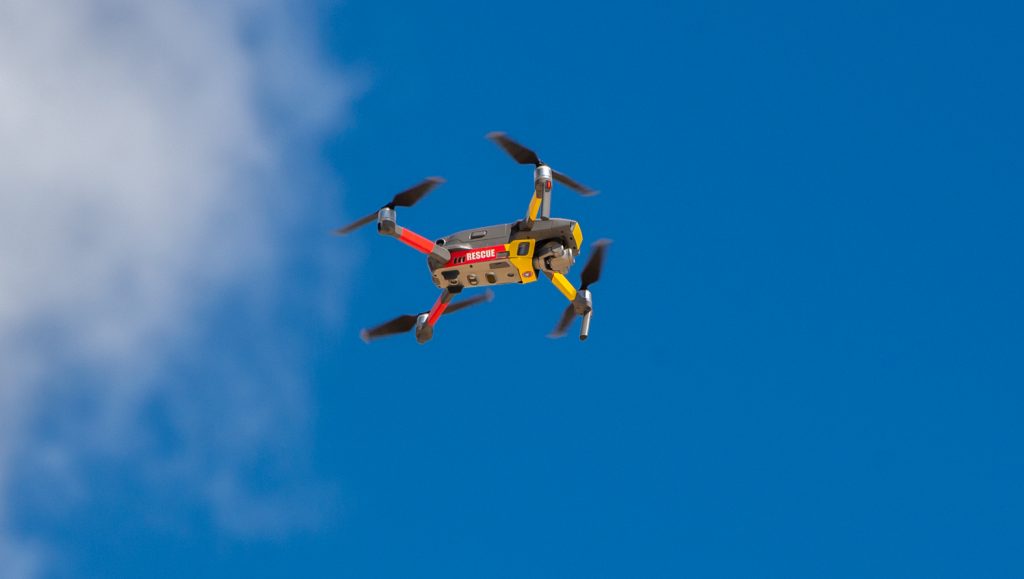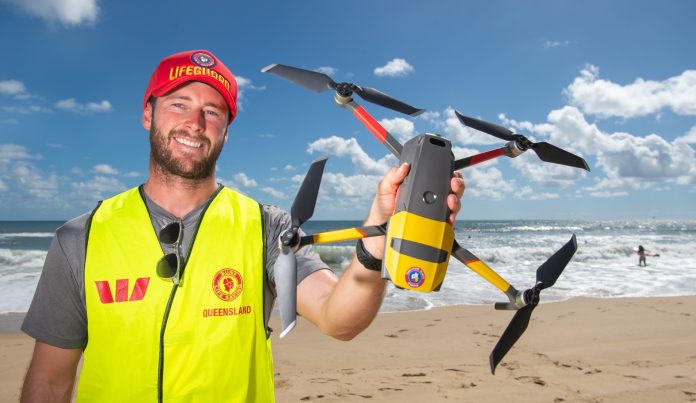Shark-spotting drones that have been scanning the seas off the Sunshine Coast for dangerous predators have made a surprising discovery.
Lifeguards say the “eyes in the sky” have been hovering over the region’s major beaches and unlike the Gold Coast or Stradbroke Island, our waters have been “relatively shark-free”.
The SharkSmart drones were introduced across South East Queensland about three months ago, via the State Government and with the support of Surf Life Saving Queensland.
Sunshine Coast lifeguards have been remotely piloting the machines at Alexandra Headland and Coolum Beach.
Their primary use is to monitor the water, detect sharks and gather data on shark movements and behaviour. If a dangerous shark is spotted, lifesavers and lifeguards will warn water users.
More than two dozen sharks have been spotted and monitored around the southeast.

Lifeguard and drone supervisor Trent Robinson welcomed their use and said it would improve safety.
“It’s been really good and interesting for us to collect data about the marine life,” he said.
“We’ve been fortunate that we haven’t had any dangerous sharks identified yet on the Sunshine Coast.
“We’ve had quite a few identified on the Gold Coast and at Stradbroke Island but the Sunshine Coast has been pretty much relatively shark-free.
“They’re out there, but they seem to be keeping their distance from the beaches and the public.”

The high-tech machines, equipped with cameras, operate Monday to Friday during school holidays, public holidays and weekends.
They perform seven flights each morning they are used. Each flight consists of about 16 passes, lasting 15 minutes.
The drones roam 400m across the swimming area and they operate 200m from the beach and from a height of about 50m.
Mr Robinson said they had spotted a variety of marine life on the Sunshine Coast.
“There are plenty of turtles and manta rays,” he said.
“At Alex we have a manta ray that sort of lives there.
“We see it every day in the corner of Alex.
“Sometimes it’s identified as a shark by patrols so it’s really good to (see with the drone and) know that it’s just the manta ray.”

He said the drones have saved time and resources, when it came to recognising creatures.
“We have used it for searches, and it has been really good to identify exactly what the marine creature is. It saves a lot of time, instead of doing (labour-intensive) searches and clearing beaches.
“We can use also the jet-ski or helicopter …. but this gets it done very quickly and it’s just a really good option.
“We have the shark nets and drumlines and now we also have the (eyes in the) sky as an extra benefit for our swimmers.”
Love local news? So do we. Help us to cover more by subscribing to our free daily news feed: Go to SUBSCRIBE at top of this article to register.
There are 23 Sunshine Coast locations with shark control equipment, including nets and drum-lines, but Mr Robinson said the drones were worthwhile additions.
They will likely be equipped with more intelligence in coming months.
“We’ll have a camera on them that can automatically identify sharks. It will be scanning the water while we’re flying it,” he said.
The drones have also proved helpful to lifeguards keeping an eye on swimmers.
The region currently has another roving drone which is for search, rescue and lifesaving operations.
The Little Ripper has helped in several preventative actions.
“We’ve identified a rip, or someone struggling and noticed the lifeguards straight away,” Mr Robinson said.
“We’ve also done work with Queensland Police with water searches.
“They can drop a buoy, they’ve got a PA system and a smart camera on them
“The Sunshine Coast is probably leading the way with marine technology.”
The Little Ripper was launched in 2016 and Mr Robinson hoped the SharkSmart drones will also be utilised long-term.
“It’s fantastic, the partnership involving surf lifesaving and Fisheries (department),” he said.
“It is a really good thing for lifeguards to be doing and the lifeguard service is happy for any extra things can help water safety of swimmers, so it’s a bonus for us.”





